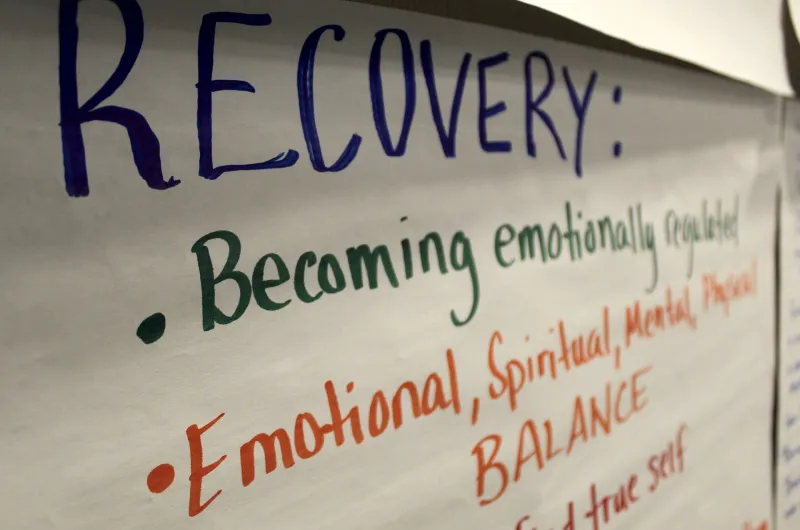
Levels of a Recovery Coach
There is currently no formalized recovery coach standard, training program, career pathway or support system to enable access to quality coaching in Alberta.
Recovery Coach Academy of Canada (RCAC) is changing that by creating a new standard through the introduction of a certification program designed specifically to develop RCPs.
We currently offer programs for recovery coaches at three levels.
Recovery Coach Training
Interact with Participants
Recovery coaches are dedicated to making a positive impact on the lives of individuals in recovery.
Through their personalized support, practical guidance, and unwavering commitment, they help participants achieve lasting recovery and build fulfilling lives.
Building trusting relationships: Recovery coaches build trusting and supportive relationships with participants, creating a safe and non-judgmental space for them to explore their recovery goals.
Motivational support: Recovery coaches provide ongoing motivation and encouragement, helping participants stay committed to their recovery plans and celebrate their successes.
Practical guidance: Recovery coaches offer practical guidance on various aspects of recovery, including developing healthy routines, building support networks, and finding resources for employment, housing, and education.
Accountability partners: By holding participants accountable to their recovery plans, recovery coaches help ensure that participants stay on track and make consistent progress towards their goals.
Key Responsibilities
-
Individualized recovery wellness plans: Recovery coaches help participants develop recovery wellness plans tailored to their unique needs. The plans are designed to address both immediate and long-term recovery objectives.
One-on-one coaching sessions: Coaches conduct regular one-on-one sessions to provide continuous support, guidance, and motivation. These sessions are a safe space for participants to discuss their progress, challenges, and any adjustments needed in their recovery plans.
Evidence-based practices: Recovery coaches employ evidence-based practices to help participants build coping strategies and resilience. This includes techniques like motivational interviewing, cognitive-behavioral strategies, and goal setting.
-
Timely access to care: Recovery coaches provide essential care and support for participants on waitlists for bed-based services, such as recovery communities. They coordinate with healthcare providers to streamline referrals and provide services and support for individuals awaiting treatment.
Streamlined referral process: Recovery coaches work to efficiently navigate participants through the referral process, helping to ensure smooth transitions into appropriate recovery programs.
-
Transition assistance: Recovery coaches help participants adjust to living in their communities after leaving a structured program, such as an inpatient treatment centre. They provide the necessary support to help clients maintain their recovery momentum during this critical period.
Ongoing support: Even after participants have completed formal programs, recovery coaches offer ongoing support to prevent relapse. This includes regular check-ins, continuous encouragement, and assistance in overcoming new challenges.
Community resources: Recovery coaches connect participants with community resources and support networks, such as support groups, housing assistance, and employment services, to enhance their recovery journey.
-
SBIRT programs: Recovery coaches play an integral role in emergency room diversion programs such as Screening, Brief Intervention, and Referral to Treatment (SBIRT). They screen patients for potential substance abuse issues, provide immediate brief interventions, and refer patients to suitable treatment programs.
Reducing the burden on healthcare: By participating in these programs, recovery coaches help reduce the burden on emergency healthcare services and improve outcomes for patients with substance use disorders.

What Recovery Coaches Do Not Do
Therapeutic counselling: While recovery coaches provide support and guidance, they do not offer therapeutic counselling or psychological treatment. Individuals requiring these services are referred to licensed therapists or counsellors.
Medical advice: Recovery coaches do not provide medical advice or treatment. They work in collaboration with healthcare providers to ensure participants receive appropriate medical care.
Diagnosing conditions: Recovery coaches do not diagnose mental health or substance use disorders. Their role is to support participants through their recovery journey, not to diagnose or treat conditions.
12-step sponsorship: Recovery coaches do not act as 12-step sponsors for individuals in recovery. They provide support and guidance but do not work through a 12-step program.
Social workers: Although there may be some overlap between recovery coaches and social workers (assessing progress and creating plans), social workers often have a Master’s Degree.